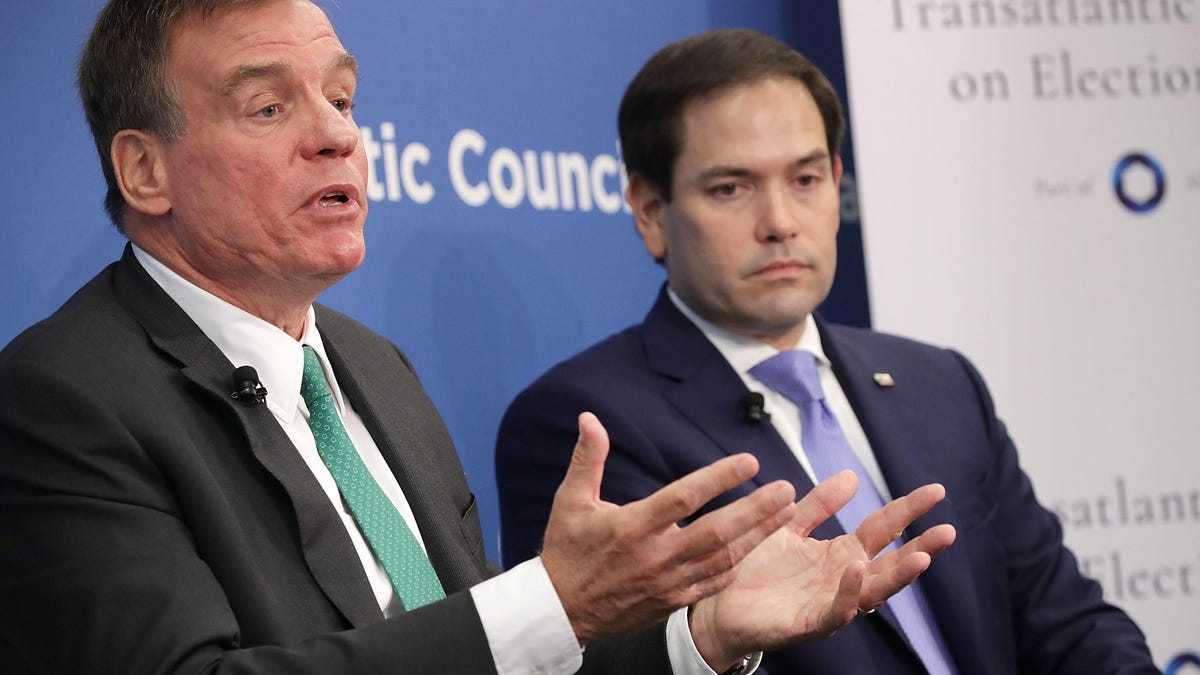Senators introduce bipartisan bill to address Chinese tech concerns
The legislation from Sens. Mark Warner and Marco Rubio aims to take on companies such as Huawei and ZTE.

Sen. Mark Warner (D-VA) and Sen. Marco Rubio (R-FL), both members of the Senate Intelligence Committee, introduced a bill to handle foreign technology threats.
Two senators want to create an office for handling foreign technology threats, especially those from China.
In a bill introduced on Friday, Sen. Mark Warner, a Democrat from Virginia, and Sen. Marco Rubio, a Republican from Florida, proposed creating the Office of Critical Technologies & Security. The proposed group would deal with foreign technology threats by coordinating efforts across government agencies, as well as private companies, such as telecommunications providers.
The US government has been concerned with supply chain threats from foreign technology for years. Those potential threats have ranged from software by Russia's Kaspersky Lab to hardware from China's ZTE and Huawei.
Warner and Rubio singled out threats from Chinese technology, noting that China has been behind multiple state-sponsored attacks against the US.
"It is clear that China is determined to use every tool in its arsenal to surpass the United States technologically and dominate us economically," Warner said in a statement. "We need a whole-of-government technology strategy to protect U.S. competitiveness in emerging and dual-use technologies and address the Chinese threat by combating technology transfer from the United States."
In December, the Department of Justice announced charges against two Chinese hackers over "massive theft" from US tech companies, as well as NASA and the Navy.
Deputy Attorney General Rod Rosenstein said at a press conference that China has been involved in more than 90 percent of the Justice Department's economic espionage cases since 2011.
Rubio and Warner are both members of the Senate select committee on intelligence, where Warner serves as vice chairman. The two have called out Chinese tech companies in the past, warning Canadian prime minister Justin Trudeau to exclude Huawei from 5G development in the country.
The two senators said technology from foreign companies, such as ZTE and Huawei, presents security risks to US infrastructure, and jeopardizes "the overall security" of private sector supply chains.
"China continues to conduct a coordinated assault on US intellectual property, US businesses, and our government networks and information with the full backing of the Chinese Communist Party," Rubio said. "The United States needs a more coordinated approach to directly counter this critical threat and ensure we better protect U.S. technology."
While the US has federal agencies dedicated to stopping technology threats, Rubio and Warner say a single office is needed to coordinate the different efforts. The proposed Office of Critical Technologies & Security would be under the White House.
The Department of Justice has made similar moves. In November, it unveiled a China Initiative that focuses on Chinese trade theft cases.
You can read the proposed legislation here:
Security: Stay up-to-date on the latest in breaches, hacks, fixes and all those cybersecurity issues that keep you up at night.
Special Reports: CNET's in-depth features in one place.

